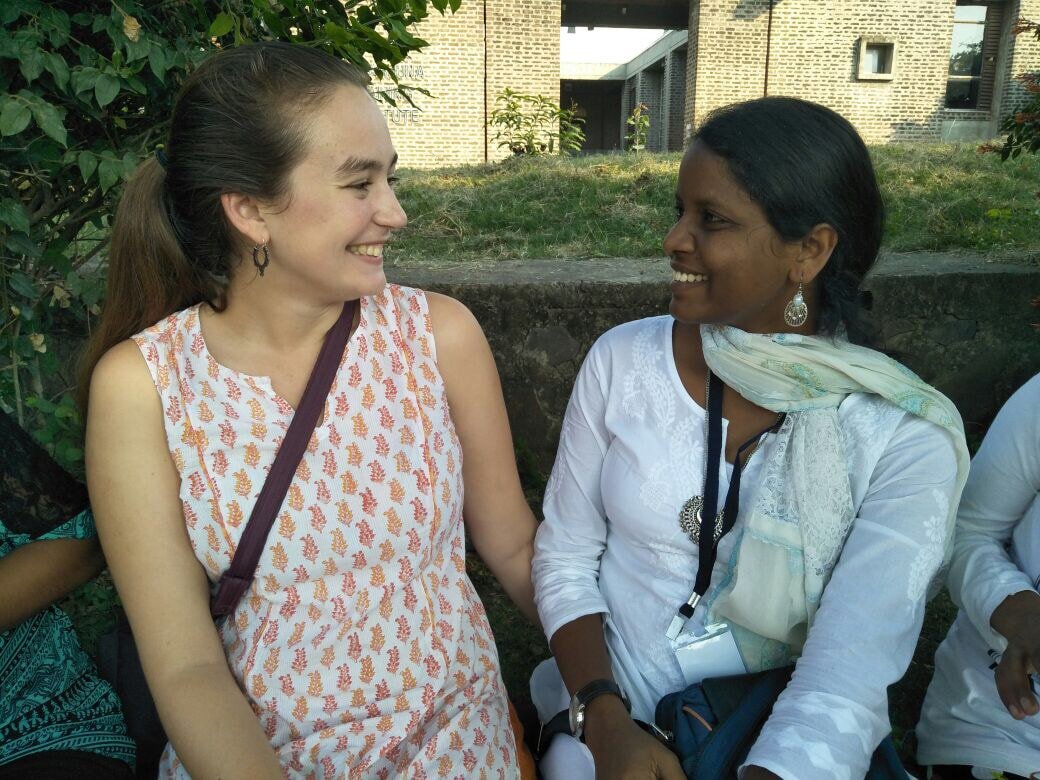
Impermanence is a double-edged sword of a concept. The Buddha taught that nothing in the universe is essential – that everything that comes also goes, everything that lives must die, and everything that is created will crumble. Accepting this concept can radically change the way a person sees the world and lives their life. On the one hand, as the Noble Truths teach, human suffering is caused by our attachment to impermanent things, and yet on the other, it can be freeing to know that even this suffering is changeable.
While I am not Buddhist, I have found the concept of impermanence useful in giving myself a bit of perspective every so often. During my months in India this year, impermanence often comes to the forefront of my mind while I analyze my experiences. “Impermanence,” one of my friends at my fieldsite jokingly consoled me, as I worried to her about my hair falling out due to my reaction to the water quality. Impermanence, I think as I sit down in the meditation hall surrounded by all the special people I’ve met and anticipate how much it will hurt to leave them at the end of the year. Impermanence, I wish, while I listen to people’s painful stories.
I spoke to one woman about what it means for a community to try to build an identity around a philosophy of impermanence. I want to pursue this question further in my work, but here I will reflect on how my fieldwork experience has forced me to confront the impermanence of my own identity. I’ve had to accept small things, like my hair falling out or that sometimes while hanging out with friends, I will be asked to sing a song and I should try to do it no matter how bad my voice sounds or how many words I forget. I didn’t know that I felt so strongly attached to being someone who only sang along to the radio and whose hair looked a certain way until I had to face these things head on. I know these examples sound silly – but what these small incidences add up to is that most of the time while I’m doing fieldwork I feel like a total idiot who has no idea what she’s doing. This larger feeling is the hardest truth to face as someone whose identity is, I realized, wrapped up in being smart and capable most of the time.
During the beginning years of graduate school, it feels like we are constructing an academic identity to wear like a suit of armor, to protect us as we venture into literal and/or figurative unknown territory for research. But really, I think research of any method requires us to be open, often uncomfortably so, to being changed. In the process of seeking answers, our selves are transformed in some small and some large ways. It is this potential for change that makes research so terrifying and so exhilarating. No matter how anxiety-ridden I get about feeling stupid in the field, ultimately when I reflect on the knowledge and relationships I have gained by being open, I know that the only fulfilling way to proceed is to continue putting myself in this vulnerable position.
In today’s world where research and knowledge are ubiquitously being deployed in the name of security – to build walls to contain us, to cease growth and change – I think it is important to approach our research from a perspective of impermanence. I don’t want to write to maintain the status quo, I want to write to aid transformation, whether it be my own or someone else’s.
---------------------------------------------
Contact Information
Mallory Hennigar
